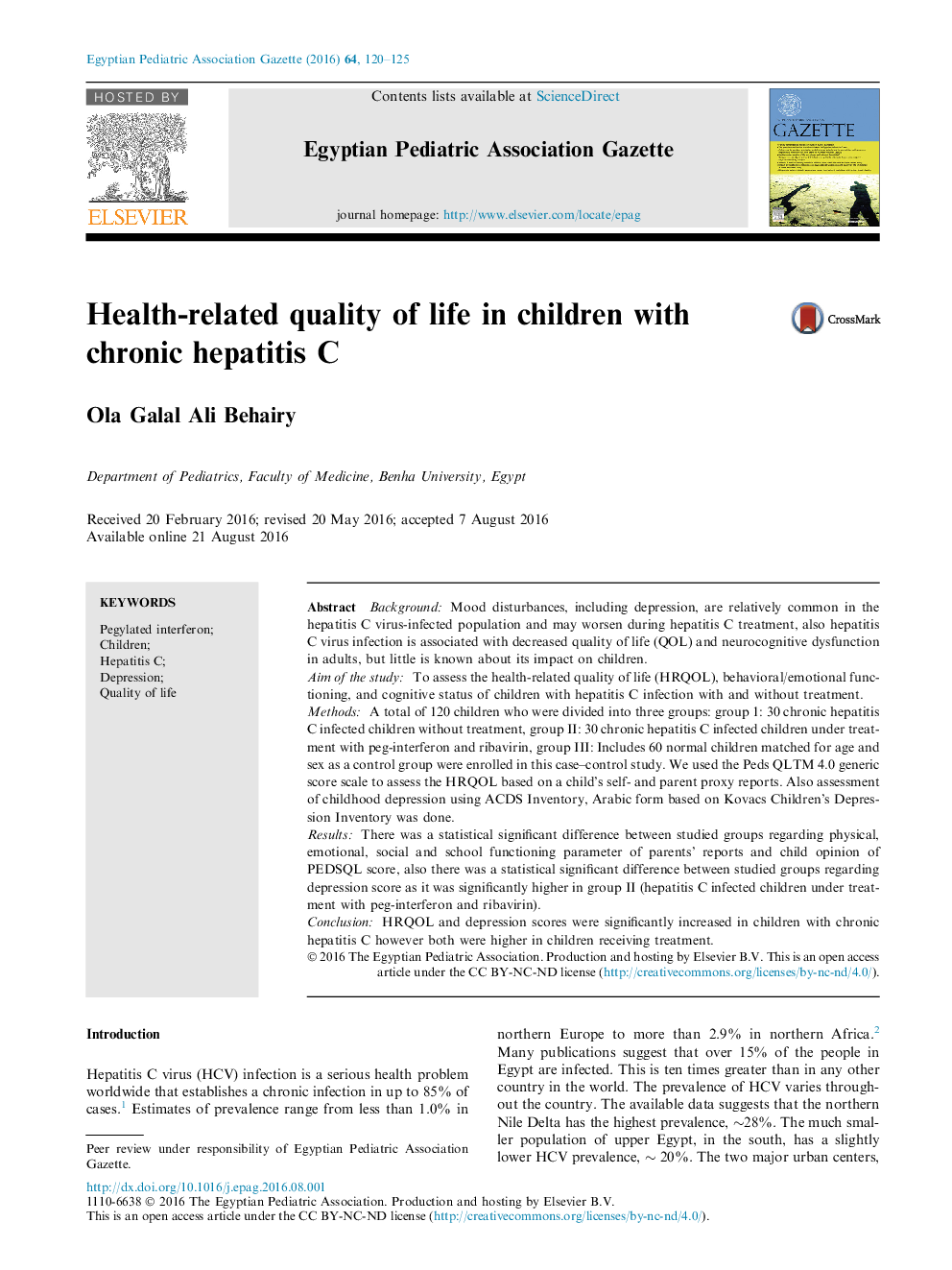| کد مقاله | کد نشریه | سال انتشار | مقاله انگلیسی | نسخه تمام متن |
|---|---|---|---|---|
| 4153554 | 1411237 | 2016 | 6 صفحه PDF | دانلود رایگان |
BackgroundMood disturbances, including depression, are relatively common in the hepatitis C virus-infected population and may worsen during hepatitis C treatment, also hepatitis C virus infection is associated with decreased quality of life (QOL) and neurocognitive dysfunction in adults, but little is known about its impact on children.Aim of the studyTo assess the health-related quality of life (HRQOL), behavioral/emotional functioning, and cognitive status of children with hepatitis C infection with and without treatment.MethodsA total of 120 children who were divided into three groups: group 1: 30 chronic hepatitis C infected children without treatment, group II: 30 chronic hepatitis C infected children under treatment with peg-interferon and ribavirin, group III: Includes 60 normal children matched for age and sex as a control group were enrolled in this case–control study. We used the Peds QLTM 4.0 generic score scale to assess the HRQOL based on a child’s self- and parent proxy reports. Also assessment of childhood depression using ACDS Inventory, Arabic form based on Kovacs Children’s Depression Inventory was done.ResultsThere was a statistical significant difference between studied groups regarding physical, emotional, social and school functioning parameter of parents’ reports and child opinion of PEDSQL score, also there was a statistical significant difference between studied groups regarding depression score as it was significantly higher in group II (hepatitis C infected children under treatment with peg-interferon and ribavirin).ConclusionHRQOL and depression scores were significantly increased in children with chronic hepatitis C however both were higher in children receiving treatment.
Journal: Egyptian Pediatric Association Gazette - Volume 64, Issue 3, September 2016, Pages 120–125
